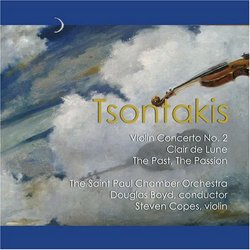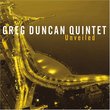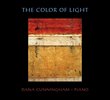| All Artists: George Tsontakis, Douglas Boyd, Saint Paul Chamber Orchestra Title: George Tsontakis: Violin Concerto No. 2; Clair de Lune; The Past, The Passion Members Wishing: 0 Total Copies: 0 Label: Koch Int'l Classics Original Release Date: 1/1/2007 Re-Release Date: 10/23/2007 Genre: Classical Styles: Chamber Music, Forms & Genres, Concertos, Historical Periods, Classical (c.1770-1830) Number of Discs: 1 SwapaCD Credits: 1 UPC: 099923759225 |
Search - George Tsontakis, Douglas Boyd, Saint Paul Chamber Orchestra :: George Tsontakis: Violin Concerto No. 2; Clair de Lune; The Past, The Passion
 | George Tsontakis, Douglas Boyd, Saint Paul Chamber Orchestra George Tsontakis: Violin Concerto No. 2; Clair de Lune; The Past, The Passion Genre: Classical
|
Larger Image |
CD DetailsSimilar CDs
|
CD ReviewsExcellent combination of the new and old Ryan Morris | Chicago, IL | 12/18/2007 (5 out of 5 stars) "This is an extra ordinary violin concerto. The more you listen to it, the more you will enjoy it and the more it will call to you with its strange glasslike textures and rolling rhythms. There is much lyricism here, as can be heard in the first movement and the cantilena(the heart) of the concerto and one of the finest pieces Tsontakis has composed. the second movement is called games, and, as expected, is great fun with Messian-esque piano accompaniment. Really extraordinary. The concerto is relatively short so there are two additional pieces on four tracks. The first is a pretty sensational piece of music called Claire de lune, which is sort of modern texture\harmony take on Tsontakis' view of Debussy and again, the more you listen, the more you are rewarded. The Past, The Passion is the final piece and it is the most difficult I think-or the most avante-garde. It still has lines to follow however so perhaps it will just require more listening-which I expect to do anyway because everything else on this disc is so fine. If you enjoy modern music that has a discernable line, inventive orchestration and texture, and, wonder of wonders--beauty and a melody---then this is recommended experiment. As mentioned, this won the Grawenmeyer award which doesnt really matter to me, but it goes to show that the piece is well thought of." Tsontakis's Crystal Palace J Scott Morrison | Middlebury VT, USA | 01/08/2008 (5 out of 5 stars) "I've been listening to George Tsontakis's 2003 Violin Concerto No. 2 for about a month now and have to admit that for the longest time I was puzzled by it. While bowled over by its sonic beauty, I kept trying to understand its construction. Something finally told me just to sit back and listen to the *sounds*, not the *form*, and that did it for me. This is one gorgeous piece, with extremely inventive orchestration that asks many of the orchestra's principals (especially the orchestral piano and tuned percussion) to contribute to the glinting, crystalline sound. There is much here that reminds one of Messiaen and of the French spectralist school, but the music is entirely tonal and there are clear uses of melodic motifs, some of them recognizably from earlier music. The violin soloist, Stephen Copes, concertmaster of the St. Paul Chamber Orchestra which accompanies him, does not have the usual flashy soloist's part but seems often to be a bystander and primus inter pares, commenting throughout on the doings of the orchestra. There are indeed moments of lyrical beauty for the soloist, but more often his contribution is one of musing, interjecting or exclaiming about what is going on in the orchestra. Schlegel, Goethe and Wilde all used the metaphor of architecture being frozen music; in this work, the music seems a depiction in sound of architecture, specifically of a building like the famous glass-and-steel Crystal Palace of Victorian London. There are dazzling shafts of light, pools of shadow and ricocheting reflections. Much of the music dwells in the upper reaches of the orchestra with long stretches with mere hints of its harmonic foundations. In the first movement, 'Surges (among stars)', this is particularly true. The second movement, 'Gioco' ('Game'), is nervously playful. The heart of the concerto is movement three, 'Cantilena', which is melancholy and wistful. The concerto ends with a brief movement, 'Just Go!', which is like smoke blowing in a gentle breeze, finally and abruptly simply disappearing into the ether. The CD is filled out with two extraordinarily beautiful works. Most appealing to me is the two-movement, 'Clair de Lune', from 2006 and dedicated to the composer's 'devoted and wonderful mother.' Its first section, 'Moonlit', is Debussyan in its use of whole-tone scales and harmonies and its obsessive use of a upward major-second motif. The second movement, 'Jeux - Ballet Moon (Pas de Deux)', pays homage to Ravel as well as Debussy and throws in some jazz as Ravel came to use it. The St Paul musicians cover themselves with glory throughout. 'The Past, The Passion' is in two movements named, uh, 'The Past' and 'The Passion.' Tsontakis wrote it in 1987 and intended it as a memorial for his father. Written for fourteen instruments, it pays homage to music of the past several centuries. 'The Past' is the first of Tsontakis's experiments with what has become a foundation of his later style, the textures of twentieth-century French music. (There is the obsessive use of a musical quotation that I simply can't place but which seems so familiar; I think it's from French ballet music but I'm damned if I can put a name to it. Perhaps someone else can help me out here.) 'The Passion' makes much contrapuntal use of the chorale-tune, 'Herzlich tut mich verlangen' (much used by Bach in his St. Matthew Passion) spiced with shards of brass and Messiaenic added-note piano chords. This disc might very well be a good place to start for someone who is not familiar with Tsontakis's music. And for those of us who lap up anything he writes, it is a veritable treasure. Strongly recommended. Scott Morrison" How welcome to hear a composer unafraid to go the expressive Penny | New Rochelle | 03/31/2008 (5 out of 5 stars) "How welcome to hear a composer unafraid to go the expressive distance, from romantic to spiky
The works by George Tsontakis on this beguiling disc reveal a composer devoted to Gallic traditions who also claims a delicate and potent voice of his own. New York-born Tsontakis revels in diaphanous textures and fanciful gestures, sometimes playful, otherwise urgent, in which lyricism and rhythmic animation are close allies. It is no wonder that his Second Violin Concerto garnered the 2005 Grawemeyer Award. The four-movement piece takes the soloist and chamber orchestra through a panoply of enchanting soundscapes, most of them tonal, with splashes of pungency deftly applied. Tsontakis weaves soloist and orchestra together in seamless conversation, exulting in ever-changing relationships and colours. How welcome to hear a composer unafraid to go the expressive distance, from romantic effulgence to spiky brilliance. The other two works here are products of distant decades -- Clair de lune from 2007 and The Past, The Passion from 1987 -- that show Tsontakis's consistency as an illuminator of translucent materials. The more recent score pays homage to Debussy even as it sheds new light on other-worldly atmospheres and instrumental interplay. The Past, The Passion may be something of a Tsontakis calling-card, with wispy auras, quicksilver thematic elements and nods to Bach that coalesce in a series of shimmering narratives. The concerto and Clair de lune were commissioned by the Saint Paul Chamber Orchestra, which sounds deeply in Tsontakis's groove in the crisp, detailed performances led by Douglas Boyd. Under the British conductor's alert baton, the orchestra gives superb voice to the massed and intimated aspects of each work. The soloist in the concerto is the ensemble's concertmaster, Steven Copes, whose burnished timbre and richly nuanced playing communicate the essence of the piece to exceptional effect. More Tsontakis performances from these forces would be most welcome. - Donald Rosenberg, Gramophone " |

 Track Listings (7) - Disc #1
Track Listings (7) - Disc #1



